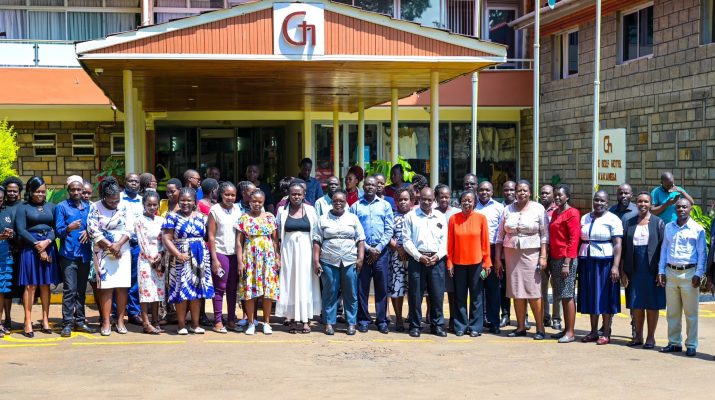By Dorothy Musyoka
Kenya’s health system has evolved significantly over the past few decades, transitioning from a predominantly curative system to one that emphasizes preventive and promotive health services.
The Ministry of Health has unveiled an upgraded training program for Community Health Assistants (CHAs) and Community Health Promoters (CHPs) in Kakamega and Vihiga counties.
The initiative, led by Judith Nyongesa, the Kakamega County Community Health Services Coordinator, is designed to elevate the standards of healthcare delivery and foster socio-economic development in the region.
The revised training program aims to optimize the delivery of Kenya’s essential health package at the grassroots level.
It focuses on equipping CHAs and CHPs with advanced skills and knowledge to address local health challenges more effectively.
“The revised training program is anticipated to elevate the standards of healthcare delivery and contribute to socio-economic development in the region,” noted the Coordinator.
“This initiative aims to optimize the delivery of Kenya’s essential health package at the grassroots level and has garnered positive feedback from CHAs and CHPs,” she added.
Kenya is taking crucial steps towards building a more robust and responsive health system that can meet the needs of its population.
The Kenyan Government in February 2024, disbursed KSh.3 billion to pay Community Health Promoters (CHP) across the country.
In 2006, Kenya adopted a community-based approach (Community Health Strategy), as articulated in the second National Health Sector Strategic Plan (NHSSP II: 2005–2010), which defined a new approach to health care service delivery to Kenyans.
This approach emphasized a more proactive approach to promoting individual and community health to prevent the occurrence of diseases.
Community health is one of the flagship projects in Kenya’s Vision 2030 and is recognized as level 1 of health care in the Kenya Health Act, 2017.

